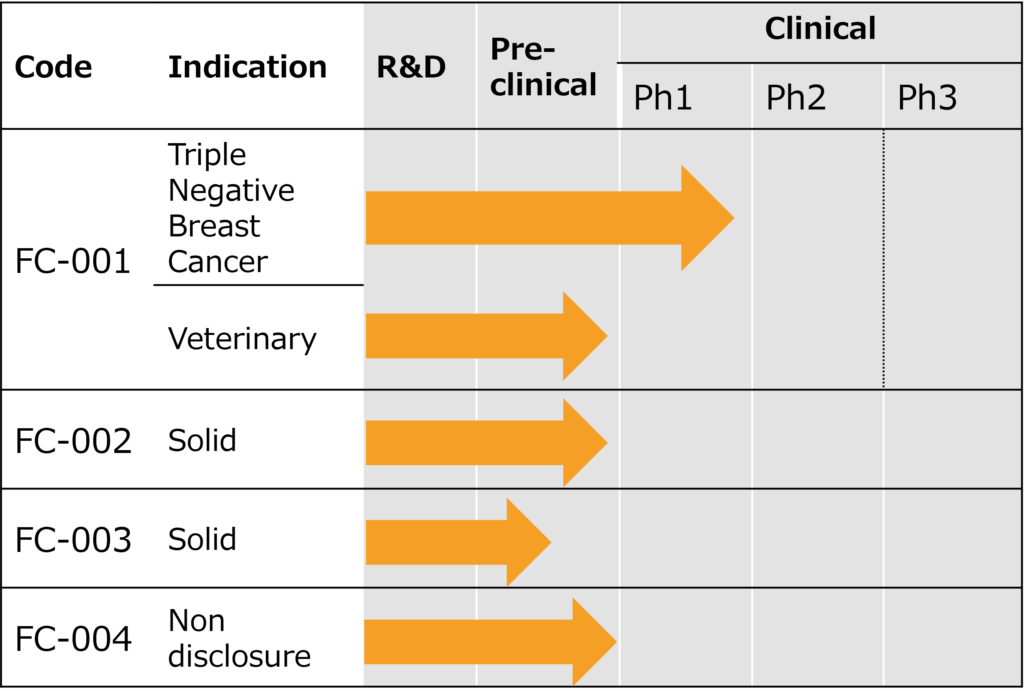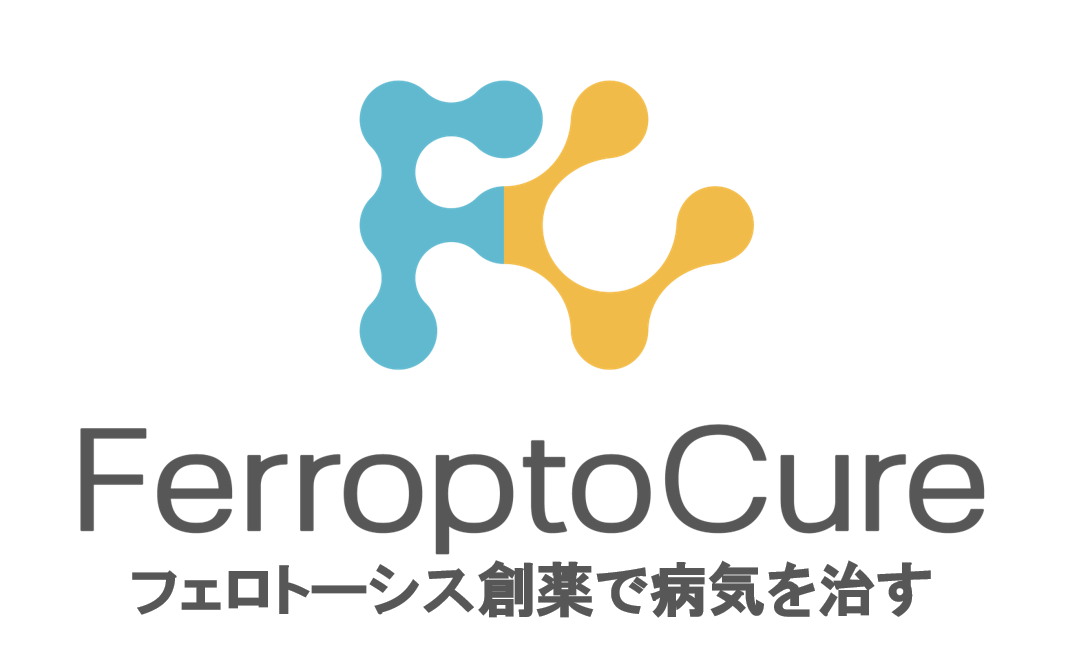FerroptoCure's Science
1.Our Research
FerroptoCure Inc, is clinical-stage company developing next-generation antitumor and other therapeutic drugs based on the latest scientific breakthroughs.
At the heart of FerroptoCure’s approach is ferroptosis. Ferroptosis is an iron-dependent cell death induced by oxidative stress and is revealed to be involved in the occurrence and progression of various diseases such as cancer; neurodegenerative diseases (Alzheimer's disease & Parkinson's disease); and Hepatitis (NASH). In particular, recent studies have shown that controlling ferroptosis is strongly involved in the occurrence, progression, and metastasis of cancer. We aim to deliver promising therapeutics to cancer patients by controlling the underlying mechanisms that induce ferroptosis.
Using the latest in next-generation sequencing, data informatics, and in silico analysis, as well as joint research with leading research institutes we are forging a new path into safe and effective cancer treatments.
2.Cancer and Ferroptosis
The accumulation of hydrogen peroxide (H2O2) and other reactive oxygen species in cancer cells oxidizes unsaturated fatty acids to accumulate lipid peroxides and induces ferroptosis. To maintain intracellular homeostatic control, cancer cells utilize reduced glutathione (GSH), an antioxidant, to reduce lipid peroxides generated by reactive oxygen species and suppress ferroptosis. This involves proteins and enzymes including the cystine/glutamate transporter (xCT) and glutathione peroxidase 4 (GPX4). Ferroptosis-inducing therapies targeting these antioxidant mechanisms are attracting attention as a new cancer treatment strategy. In particular, cancer cells resistant to currently approved anticancer therapies are known to be highly sensitive to ferroptosis, and inducing ferroptosis is an exceedingly promising avenue as a next-generation cancer treatment strategy.
3.FerroptoCure Focuses on the Manipulation of Antioxidant Mechanisms to Control Ferroptosis
The xCT subunit of the cystine-glutamate exchange transporter, which is disparately expressed in cancer cells, functions by incorporating cystine into cells, which is the raw material for reduced glutathione, an antioxidant. By inhibiting xCT we can induce ferroptosis, and as such has become one of the most promising targets for cancer treatment.
Having already conducted clinical trials using xCT inhibitors, we have reported that in advanced lung cancer, the progression-free survival can be significantly prolonged by combining xCT inhibitor with chemotherapy (Cancer Sci. 2017).
Furthermore, we have elucidated the mechanism by which cancer cells acquire resistance to xCT expression. This has enabled us to induce ferroptosis even in cancer cells that are resistant to therapeutic xCT inhibitors. We are currently developing anticancer treatments vis-à-vis this mechanism and our unique technological innovations working towards a safe and effective therapy for drug-resistant cancers for patients worldwide.
We are also simultaneously developing a pipeline applying this technology to companion animals. Through the development of anticancer drugs that can be used in humans, we have succeeded in creating drugs with high efficacy and safety. Therefore, we thought, can we make this drug useful for companion animals suffering from cancer? Anti-cancer drugs for animals are quite limited at present and the rates of companion animal deaths are on the rise. With the importance of pets made clear during Covid-19 lockdowns, the need for an equally safe animal treatment is becoming more necessary than ever.
4.Piplines

